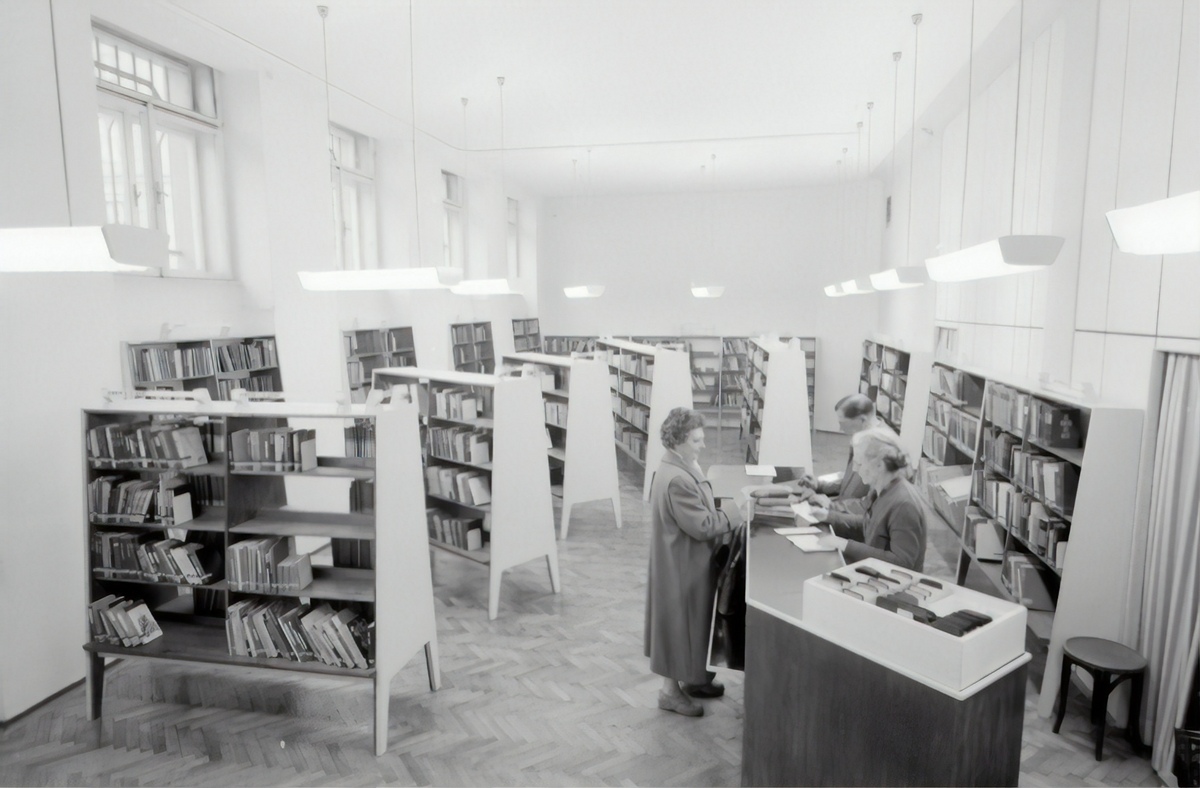News Item | 17. October 2022
NFDI4Culture puts guidelines and link recommendations online

Austrian National Library
"A library user stands across from two library staff members at a counter." Owner: Austrian National Library
One of the most important goals of NFDI4Culture is to impart knowledge and skills on all aspects of research data management in the culture field. A central pillar for this are the guidelines, which explain basic topics and terms of research data management in a comprehensive and understandable way, always from the perspective of the subjects represented in NFDI4Culture.
The publication of the first two guidelines as part of the NFDI4Culture Knowledge Base is an important step in this direction: "Kulturwissenschaftliche Forschungsdaten" (Cultural Studies Research Data) provides a basic introduction to research data management in the arts, cultural studies, and humanities, with explanations of key terms, standards, and tools. The "Leitfaden für die nachhaltige Entwicklung und Nutzung von Forschungssoftware" (Guide for the Sustainable Development and Use of Research Software) explains how software and the research results produced with it can remain sustainably available in the sense of the FAIR principles and be re-usable as far as possible. Further NFDI4Culture guidelines are in preparation.
Permanently available and re-usable are also the guidelines themselves – both have been published not only online, but additionally as a data publication on zenodo under a CC BY license. Thus, we invite you to publish and redistribute these resources anywhere you want.
As another central knowledge resource, the project now provides curated link recommendations. These link recommendations point to high-quality open educational resources (OER) on all aspects of tangible and intangible cultural heritage research data management.
Guidelines and link recommendations are part of NFDI4Culture's comprehensive knowledge base, which in the future will also include reports and specifications from the consortium's work areas and make them permanently available. All resources can be found via a search mask or keywords, can be selected via a filter or browsed by means of a systematic entry in the page menu.
On the occasion of the launch of our knowledge base and the release of the first NFDI4Culture handouts, we would like to thank all those who have made this project such a success – Team Guidelines, in which staff members from every area of NFDI4Culture have worked, and Team Development around Torsten Schrade, which has technically implemented the ideas with the participation of the student staff. Together, they not only made an important contribution to data literacy in NFDI4Culture communities, but also developed a content-related and technical workflow, which will also be publish here as a further guideline.